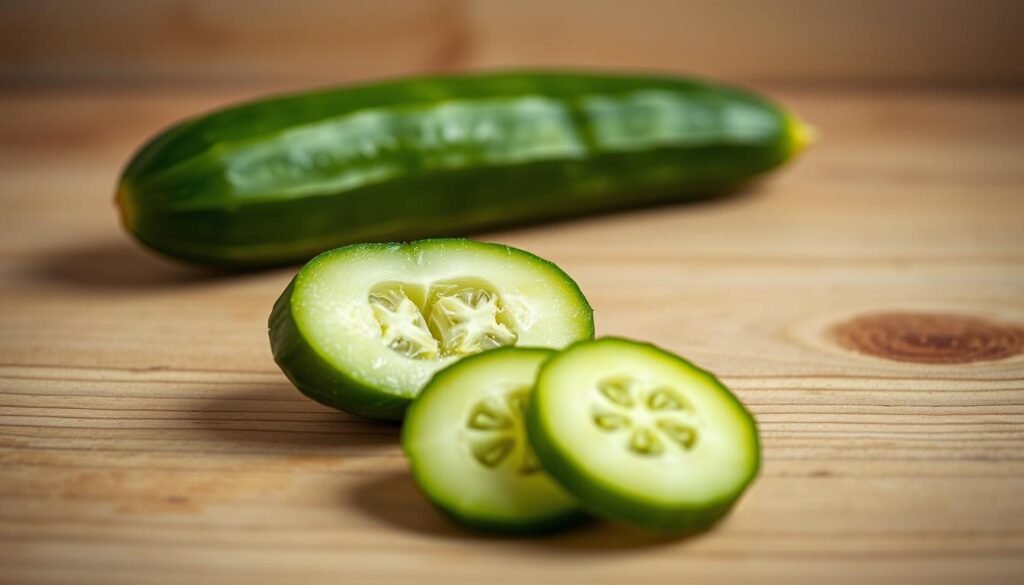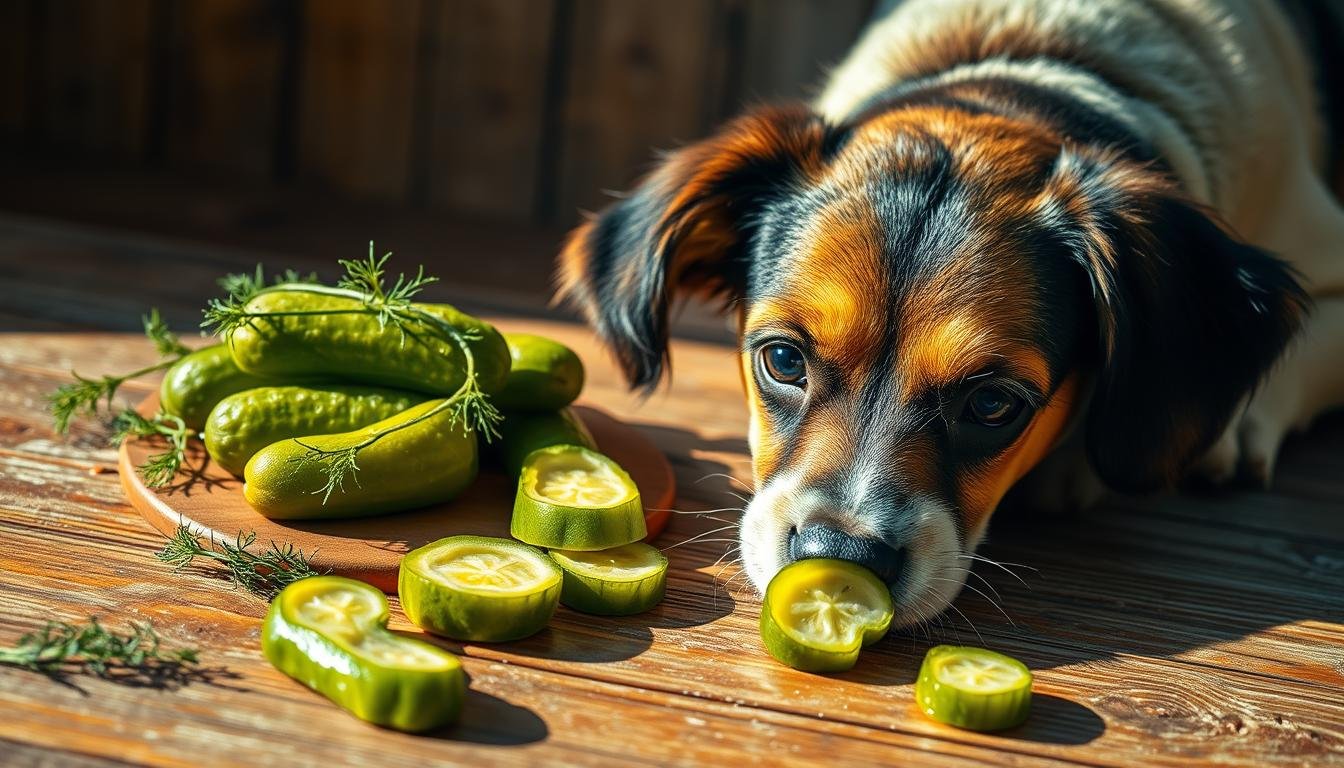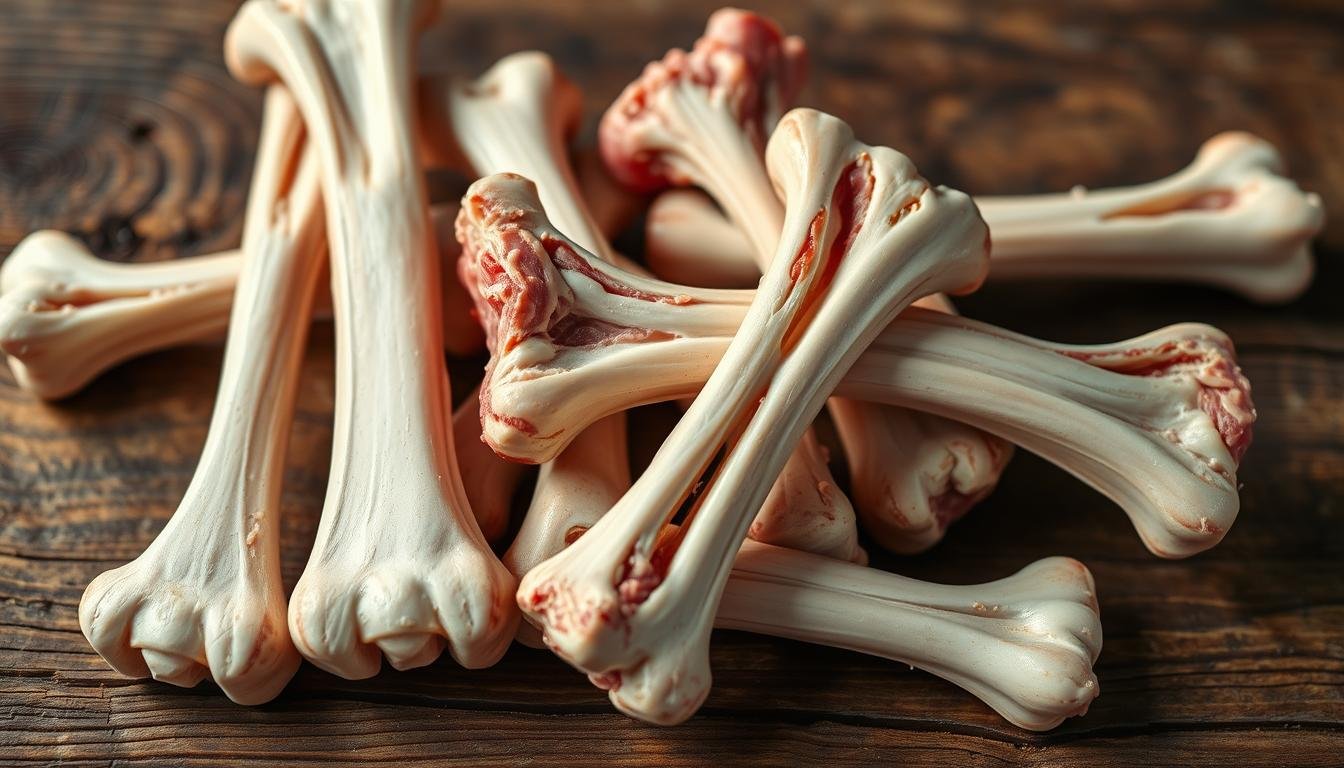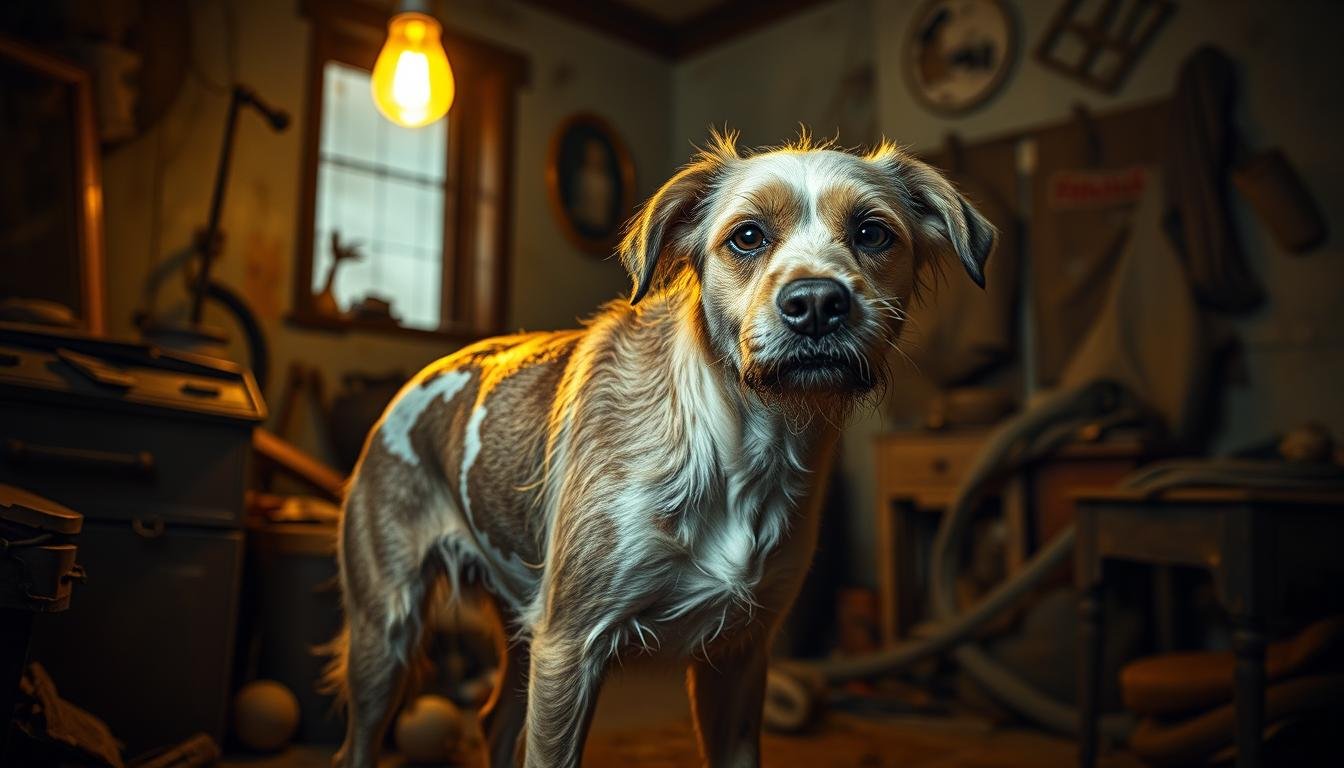Have you ever wondered if your furry friend can enjoy a dill pickle? While cucumbers are a healthy snack for dogs, the pickling process introduces ingredients that could be harmful. Salt and vinegar in the brine can affect your dog’s health. Understanding these risks is crucial for pet owners.
According to the AKC, pickles are non-toxic but contain high sodium levels. Even though cucumbers are safe, pickles may have toxic additives like garlic or onions. These can cause serious health issues.
The pickling process transforms a harmless cucumber into a treat that’s high in salt and vinegar. While a small amount might not harm your pup, regular consumption can lead to health problems. It’s essential to differentiate between safe and harmful ingredients.
Key Takeaways
- Cucumbers are safe for dogs but pickles may not be due to added ingredients.
- High sodium in pickles can cause gastrointestinal issues in dogs.
- Some pickles contain toxic ingredients like garlic or onions.
- Moderation is key if you choose to give your dog pickles.
- Consult a veterinarian before sharing human food with your pet.
Understanding the Risks of Feeding Pickles to Dogs
Feeding pickles to your dog can pose several health risks, primarily due to the ingredients used in the pickling process. While cucumbers themselves are safe, the added components in pickles can be harmful to your pet.
Ingredients of Concern: Salt, Vinegar, and Spices
The brine used in making pickles contains high levels of salt, which can lead to sodium toxicity in dogs. This can cause symptoms like vomiting and diarrhea. Additionally, some pickles include onions and garlic, both of which are toxic to dogs and can lead to anemia and other serious health issues.
Potential Health Effects and Toxicity
Consuming pickles can result in gastrointestinal distress for dogs, including vomiting and diarrhea. The high sodium content can also lead to more severe health problems, such as high blood pressure and heart complications. Even small amounts can trigger negative reactions, especially in sensitive dogs.
While pickles are not immediately lethal, they can contribute to long-term health problems. It’s crucial to consult a veterinarian before introducing pickles or any new foods to your dog’s diet to ensure their safety and well-being.
Can Dogs Have Dill Pickles? Exploring “can dogs have dill pickles” in Detail
While dill itself offers some health benefits for dogs, the pickling process introduces risks that outweigh these advantages. Dill is known for its antioxidant properties and can even freshen your dog’s breath. However, when transformed into a dill pickle, the addition of salt, vinegar, and sometimes sugar creates a treat that’s far from safe for your pup.
Dill’s Benefits Versus Pickling Hazards
The natural benefits of dill are overshadowed by the high sodium and acidity in pickles. While a small amount of pickle might not harm your dog, regular consumption can lead to serious health issues like high blood pressure and gastrointestinal problems. The brine used in pickling is particularly dangerous due to its high salt content, which can cause sodium toxicity in dogs.
The Dangers of Pickle Juice
Pickle juice poses a significant threat to your dog’s health. The concentrated salt and vinegar in the brine can damage your dog’s stomach lining and intestines. Even small amounts can lead to vomiting, diarrhea, and lethargy. It’s crucial to keep pickle juice out of your dog’s reach to prevent these health issues.
- Dill offers antioxidant benefits but pickling introduces harmful ingredients.
- High sodium in pickles can lead to health problems in dogs.
- Pickle juice is particularly dangerous due to its concentrated salt content.
In conclusion, while dill itself is safe in moderation, dill pickles and their juice are not a safe treat for dogs. Always consult your veterinarian before introducing new foods to your dog’s diet to ensure their health and safety.
Safe Alternatives and Nutritional Options for Dogs

Fresh cucumbers make a great snack for your pup, offering vitamins and hydration without the risks of pickles. They’re 96% water, making them perfect for hot days.
Fresh Cucumber: A Nutritious Substitute
Fresh cucumbers are packed with vitamins A, K, and C, along with minerals like magnesium and potassium. They’re low in calories and high in fiber, making them ideal for dogs, especially those needing to watch their weight.
Other Dog-Friendly Vegetables and Fruits
Carrots, green beans, and bell peppers are also excellent choices. Carrots support healthy vision, while green beans provide fiber and protein. Bell peppers offer vitamins A and C.
- Fresh cucumber: Rich in vitamins and hydration.
- Carrots: Support healthy vision and digestion.
- Green beans: Low-calorie, high-fiber treats.
These alternatives contribute to a balanced diet, ensuring your dog’s long-term health without the risks of processed foods.
What to Do if Your Dog Eats Pickles

If your pup accidentally munches on a pickle, stay calm but act quickly. Understanding the next steps can help protect your dog’s health.
Recognizing Warning Signs and Symptoms
Keep an eye out for signs of a health issue. Common symptoms include:
- Vomiting
- Diarrhea
- Stiffness
- Dehydration
These issues often arise due to the high salt content in pickles, which can lead to gastrointestinal distress.
When to Seek Veterinary Help
While a small amount of pickle might not be toxic, larger quantities or pickle juice can be dangerous. Contact your vet immediately if you notice:
- Severe vomiting or diarrhea
- Excessive thirst
- Lethargy
Sweet pickles pose an added risk due to sugar and other ingredients, making vet consultation crucial.
Always identify the type of pickle your dog ate and check the ingredient list for harmful additives. At home, keep your dog calm and hydrated. However, never induce vomiting without your vet’s advice.
Conclusion
In conclusion, while fresh cucumbers are a healthy snack for dogs, pickles pose significant risks due to their high salt content, brine, and potential toxic additives. The pickling process transforms a harmless cucumber into a treat that’s far from safe for your pet. Excessive pickle consumption can lead to gastrointestinal issues, sodium toxicity, and other health problems.
For pet owners, it’s crucial to explore safe alternatives like fresh cucumbers, carrots, or green beans. These options provide essential nutrients without the dangers associated with pickles. Always consult a trusted veterinarian before introducing new foods to your dog’s diet to ensure their well-being.
Remember, the risks tied to pickles far outweigh any potential benefits. Opt for natural, healthy choices and keep pickles out of your dog’s reach. For more detailed insights, visit our guide on pickle safety for dogs to make informed decisions for your pet’s health.




Interesting article! But if dill pickles can be toxic, why arent dog food regulations more stringent about ingredients?
Interesting read! But arent cucumbers basically the same thing as pickles? Would dogs react differently to them?
Dont you think the content of pickles could be balanced out with other dog-friendly foods? Just a random thought.